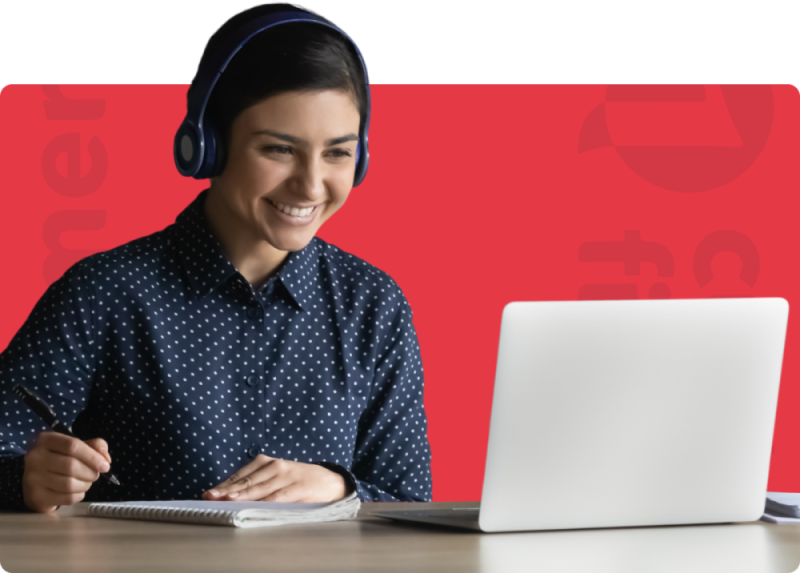A panel interview is an interview format in which you are interviewed by more than one team member.
The panel interview can vary drastically depending on the company and how many people you’ll have interviewing you at once. Sometimes it’s just a casual conversation where everyone is asking questions that interest them, other times there may only be two or three people who ask most of the questions while others observe silently from behind their desks.
Some companies even use panel interviews as roundtable discussions instead of individual sessions. This way, every member has an equal opportunity to hear your answers and discuss among themselves afterward what they thought about you before making a decision.
Whatever type of panel interview it is, remember to remain professional no matter how many people there are.
Why Is There a Panel Interview?
There are a number of reasons panel interviews are popular. One is that the company can get to know you better and figure out if they want to hire you by discerning how well your personality and skills fit the role. Rather than having just an individual or two in charge of interviewing, they rely on a team of people to be involved in the recruitment process.
Panel interviews also give everyone involved equal responsibility for hiring decisions. While there may be a primary interviewer whose opinion weighs more heavily on whether or not you’re hired, other members will have their say as well. So no matter who asks questions, it’s important to make sure every person feels like they’ve had time to ask about what interests them while giving each questioner enough information before moving onto someone else.
Panel interviews are also useful because you get to see how well your personality fits with everyone else. If panel members don’t seem to get along or you don’t like the dynamic of the team, that may be an indicator it’s not the right company for you.
Panel Interview Advantages and Disadvantages

What are the Pros?
There are many panel interview advantages to consider. They’re great opportunities for people who have difficulty in one-on-one interviews because panel members can help you feel more at ease and give you a chance to get your personality across in a group setting.
The panel interview gives everyone involved an equal say so all opinions count in the hiring decision. This is also helpful if there’s not just one person leading the discussion since some companies may be looking for different qualities in their employees than others do.
For instance, a team member who likes working alone might prefer to find someone who’s independent and not very talkative, whereas another member might find this quality unappealing.
Panel interviews can also be great for companies because they’re efficient in terms of time and resources. Having multiple people join the interview will save them time and speed up recruitment.
What are the Cons of Panel Interviews?
The biggest panel interview disadvantage is that it’s difficult to get an idea of what one person thinks about you when multiple people are involved. Make sure to take notes on everyone’s points throughout the process. This will help you figure out what qualities each interviewer values most, as well as where your strengths lie compared to other applicants.
Make sure not only that you give every member adequate answers but also show how much effort went into researching the company beforehand.
If panel members see that you’ve done your homework and are interested in what they do, this will make them more eager to recommend you for the position or at least give their input on why they’d want to hire you.
Keep in mind panel candidates may feel nervous as well since everyone is watching closely during every moment of each session.
Panel Interview Example
Let’s say you are interviewing for a Customer Service Manager position. In this role, you’re likely required to work with people from different departments, so panel interviews are a great way to see how you’d handle different personalities and whether they mesh with your own.
During the panel interview, you might meet the HR manager, your direct supervisor, members of your team, or employees from other departments you’ll be working with.
A panel interview will typically start out with an introduction of each member, where their name is, and what department they work in at the company.
Pay close attention or take notes on everyone’s names. When it comes time for questions, you can refer back and make eye contact since this shows interest in every person present.
Once everyone is introduced and settled, panel members will ask you questions about your skills, experience and personality.
Depending on how many panel members are involved, it might feel very different from a normal question-and-answer session with one person.
It’s important not to let yourself get overwhelmed by all of the people. Remain professional while showing enthusiasm for your work and being excited about joining their team!
Research the Interview Panelists Before Your Interview
It’s important to do research before going into a panel interview so that you know what types of questions to expect from each interviewer beforehand.
If possible, find out who the interview panelists are in advance, so you can read up on what they do at the company and how their role might affect your job. You can learn about their roles through the company page and their individual LinkedIn profiles.
What Are Common Panel Interview Questions?
Panel interviews can be intimidating because there is a good chance that at least one person will ask something that might catch you off guard. But, it’s important to remain confident and professional no matter what they ask while answering their queries with ease.
Some of the most common panel interview questions include:
- Can you tell us a bit about yourself?
- What do you know about our company/industry?
- Why are you interested in this role?
- Why should we hire you for this position?
- What are your strengths and weaknesses?
- Where do you see yourself in five years’ time?
- Do you have any questions for us?
How Do Panel interviewers Make Their Decisions?
Panel interviews are unique because panel members usually discuss your answers among themselves after the interview.
They will give one another their opinions based on who they think would be best suited to work with them or who would be a less viable candidate.
By having everyone share their thoughts together, panel interviewers get a better picture of how well they can work as a team.
Preparing for a Panel Interview

What to Wear to a Panel Interview?
Dress for success! Wear professional attire that is appropriate for the company’s culture, your industry, and the role you are applying for. Your choice of clothing will greatly vary based on these factors, so make sure to do your research.
In general, make sure that your attire is respectable and professional. That means no flashy colors or anything too tight or revealing. It’s best if you err on the side of caution and dress up a little more than normal because panel interviewers tend to judge more heavily based on appearance compared with one-on-one engagements.
Also remember not just what you’re wearing but how it fits as well!
You should feel comfortable without excess fabric bunched together where it shouldn’t be. This includes both length and width when dealing with pants/skirts and blouses/shirts, respectively. Nothing kills an interview faster than looking sloppy and disorganized, so make sure you look the part from head to toe.
What Should I Bring to a Panel Interview?
Usually hiring managers will let you know in advance what they’d like you to bring or prepare for an interview. This may be a portfolio of your work, professional references, transcripts, a paper copy of your resume, etc. It is always a good idea to have everything on hand just in case they do request something from you before or during your session.
Research the Employer and Their Products or Services
It never hurts to do a little background research on panel members and what their company does before going into the panel interview. This way if they ask you any questions about them or their products, services, you’ll be able to answer with confidence.
Understanding who the panel members are will keep the conversation clear and help you avoid confusion.
Be Prepared to Answer Challenging Questions
Practice answering common interview questions about your strengths, weaknesses, and previous work experience in advance.
Panel interviewers are looking for people who can think quickly and on their feet.
That means that when panel members ask you challenging questions, they want to know how well you’ll be able to respond under pressure (instead of having time to prepare ahead of time).
For example:
If panel members ask what your biggest weakness is, chances are good that they won’t accept “I’m great at everything!” So come up with some concrete examples instead well in advance!
Remember, honesty will always be the best policy here so don’t make something up just because it seems like the right thing to say. Interviewers will see right through it and will likely find out the truth later on down the line.
5. Ask Insightful Questions
Ask questions that show that you have done research on the company.
Interviewers appreciate it when a candidate asks good questions about the company they’re applying to or their day-to-day work. Not only does this show that you have done your homework and care enough about being hired by them to want more information, but it also shows how serious you are as well!
Avoid really generic questions or ones that are already answered in the job posting.
If panel interviewers don’t feel like an applicant is committed, they won’t hire them. Make sure you prove from the start why hiring someone like you would be beneficial for their business!
Be confident in yourself and in what makes you unique. Say something memorable, positive, and upbeat at the end of each panel interview question.
6. Follow Up With a Thank-you Note After the Interview
The last step is to thank panelists for their time and consideration.
Once panel members have finished asking you questions, it’s customary to thank them for their time. It’s also recommended to send a follow-up email or letter thanking them again.
This shows that you enjoyed speaking with them and that you’re willing and able to go above and beyond when necessary! This shows the company that you are a team player first & foremost.
Got the job? Check out this audio tutorial to learn how to make a positive impression on your first day!
Conclusion
Panel interviews can be intimidating, but interviewers are looking for people who will work well on their team. Panel interviews are a great way for you to meet multiple people from the team and get a better sense of the company culture and their expectations.
Be prepared to answer challenging panel interview questions and you will have a competitive edge over other applicants!
Panel interviews can be tricky, so it’s important that you make good first impressions with everyone.
Make sure your answers demonstrate how great of an addition you’ll be by being confident yet honest. You want them to see why hiring someone like yourself would benefit both the company as a whole & themselves personally too!
Good luck with your future panel interviews!
